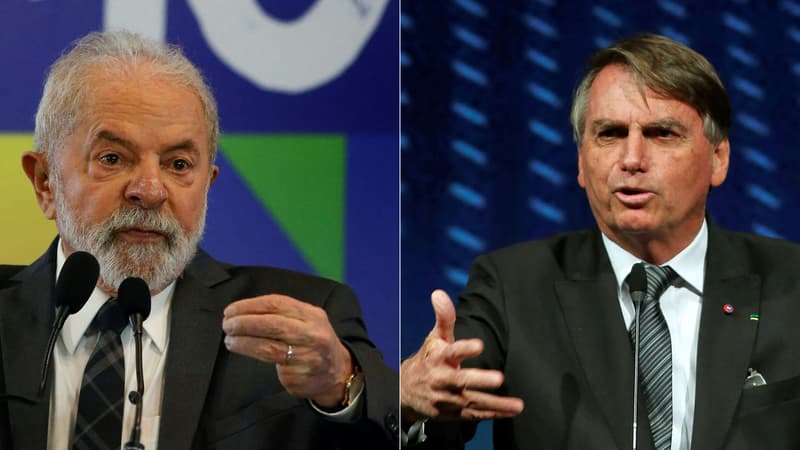Left-wing former President Lula won the first round of Sunday’s presidential election in Brazil, but outgoing President Jair Bolsonaro fared better than expected and a second round will be held to decide between them.
Luiz Inácio Lula da Silva, icon of the Brazilian left, obtained 47.97% of the votes, ahead of the outgoing president of the extreme right, with 43.60%, the Superior Electoral Court (TSE) announced at night. based on count. 97.69% of the polling stations.
This narrow victory is disappointing for Lula, to whom the polls promised a wide advantage, even a victory in the first round, which he wanted to celebrate on the great Avenida Paulista in Sao Paulo.
An unexpected second round
He will have to face his sworn enemy in a second round, foreseen by the electoral law on October 30. President Jair Bolsonaro fared much better than expected, as polls showed him far behind Lula in voting intentions (36% to 50%).
For the populist leader, who escaped a humiliating defeat in the first round, these four weeks may be an opportunity to galvanize his troops in the streets and find new momentum.
A second round means another month of a poisonous campaign that has tired millions of Brazilians since August. The candidates exchanged many personal insults and presented few plans for the future of Brazil, a deeply fractured country with immense challenges.
“It adds to the uncertainty,” said Michael Shifter of Georgetown University, “it wouldn’t be surprising to see more riots or violent incidents.”
In addition, many Bolsonarista candidates, including former government ministers, have been elected to Congress and as governors. But in the Lulista camp, Viviane Laureano da Silva, a 36-year-old civil servant, remained confident.
“The campaign will be difficult, but Lula will win in the second round,” he said in Rio.
Long tails
Throughout the day, Brazilians had rushed en masse to elect their president, but also the deputies, a third of the senators and the governors of the 27 states, with long queues.
The vote, to which 156 million voters were called, apparently took place without violence in the largest country in Latin America. Two uncertainties weighed on this election day: whether Lula would be elected for a third term as president in the first round and whether Bolsonaro would challenge the result, as he had threatened to do for months.
“If the elections are clean, there is no problem. May the best win!” President Bolsonaro, 67, said during the morning vote in Rio de Janeiro.
Annoyed by the insistent questions from the press, Bolsonaro, dressed in the yellow and green jersey of the national soccer team under which he wore a bulletproof vest, had not wanted to say clearly if he would recognize the result.
But the Brazilians punished the outgoing president, 67, less than expected for his denial of the Covid (685,000 dead), the economic crisis in a country where more than 30 million people suffer from hunger and the crises that have marked his entire term. . .
Former left-wing president (from 2003 to 2010) Lula, 76, is struggling to get rid of the image of corruption that has accompanied him since the great “Lavage express” scandal, which earned him 18 months in prison before his death. the sentences were annulled or prescribed.
Lula followed the announcement of the results in a large hotel in Sao Paulo and Jair Bolsonaro in the presidency, in Brasilia.
“For me, this is the most important election,” said the former steelworker, voting in Sao Bernardo, a working-class suburb of Sao Paulo.
Lula, the return
Lula is contesting his sixth presidential race, 12 years after leaving power with a stratospheric popularity rating (87%).
At polling stations, voters often dressed in Bolsonarista yellow and green or Lulista red sometimes had to wait several hours to vote because of the crowds. But the president of the Superior Electoral Court (TSE), Alexandre de Moraes, assured that the vote was carried out “without problem”, and wanted to “reaffirm the reliability and transparency” of the electronic ballot box system, so often criticized by Jair Bolsonaro. .
More than 500,000 members of the security forces had been mobilized to guarantee the security of the ballot, which was carried out in the presence of dozens of foreign observers.
Source: BFM TV


